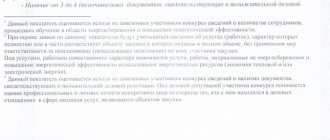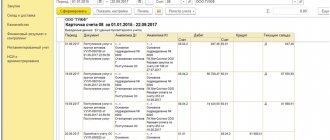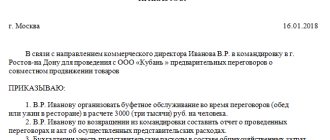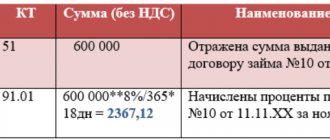How to keep records of goods exports
Export in economics refers to the export of goods abroad for sale or processing. Goods exported outside the state are recorded by the customs service and drawn up with the relevant documents. Documents accounting for and accompanying the export of goods abroad of the Russian Federation must be drawn up in accordance with the current laws of Russia.
The main laws regulating foreign trade activities are the Federal Law “On Currency Regulation and Currency Control” No. 173-FZ dated December 10 and the Law “On the Fundamentals of State Regulation of Foreign Trade Activity” dated December 8, 2003 No. 164-FZ.
Law No. 173-FZ defines:
- rights and obligations of persons participating in foreign economic transactions;
- currency regulation authorities and foreign exchange control authorities;
- rights and obligations of currency control authorities and agents.
In accordance with Federal Law No. 164-FZ, goods fall under the customs export procedure if the following conditions are met:
- for transactions that are not subject to statutory benefits, all export customs duties have been paid;
- all restrictions and prohibitions are observed;
- For goods included in the consolidated list, a certificate of origin is presented.
Read the article: Modern structure of Russian exports
Fines for foreign trade activities
Errors in foreign trade transactions and accounting can be costly for a company. Most sanctions apply to violators of currency laws. For non-compliance with control standards, non-fulfillment, untimely or improper fulfillment of obligations, civil, administrative and criminal liability is provided. Sanctions can be applied by the Federal Customs Service, the Central Bank and the Federal Tax Service. Most often, violators have to deal with the tax authorities.
In case of foreign economic activity, incorrect accounting and failure to provide documents confirming the transaction at the request of the tax office or bank can cost 40,000-50,000 rubles. In case of repeated violation within a calendar year, the amount of the fine increases 10 times. For failure to provide information about opening or closing foreign accounts, the taxpayer may pay 50,000–10,000 rubles. Failure to return currency from abroad can cost from several hundred to a million rubles. There is also criminal liability for this violation.
Typical errors in foreign trade accounting are, of course, cheaper. But no one wants to lose money.
Accounting for goods export operations: required documents
When exported from Russia, the goods are taken outside the Russian Federation for subsequent processing or sale, that is, without the right of return. Export is subject to the payment of duties. Their size depends on various reasons and, in particular, is determined by the value of the exported goods, which is declared in the customs declaration. When carrying out export operations, there is a certain procedure.
Accounting for the shipment and sale of goods for export is carried out separately from accounting for the activities of the enterprise in the Russian Federation. The document flow uses primary documents confirming the shipment of goods, their payment, and the services of intermediaries.
All goods transported abroad of the Russian Federation are subject to mandatory customs clearance, which can be carried out:
- by the exporter himself,
- his customs representative,
- by another person on the basis of a power of attorney.
A package of supporting documents is attached to the declaration presented to the customs authority. It is allowed to provide documents in copies, and the customs authority has the right to check any of them for compliance with the original.
Read the article: Customs transit of goods
Accounting for VAT when carrying out export operations
When selling goods (works, services) for export, a “0” VAT rate is applied. Enterprises that comply with legal requirements for processing transactions have the right to deduct tax amounts presented by the supplier. To confirm export and receive a tax deduction, you must:
- Register the receipt of goods (works, services).
- Register the delivery invoice in the purchase ledger.
- Issue an invoice for shipment with registration in the sales book
- Submit a declaration to the Federal Tax Service.
- Attach to the declaration a package of documents, the list of which is given in Art. 165 Tax Code of the Russian Federation.
The company has 180 days to confirm the zero rate. If it is not possible to confirm the right to apply the zero rate, you will need to pay the full cost of the tax and penalties for the entire period of delay.
Accounting for export of goods
To obtain reliable information, accounting for the export of goods is carried out in separate sub-accounts, which makes it possible to separate ordinary and foreign economic activities in accounting. Features of accounting and tax accounting for the export of goods include:
1. Settlements under an export contract are most often carried out in foreign currency. To do this you need:
- open foreign currency accounts for each currency separately, and use account 52 in accounting for settlements with the counterparty: Dt 52 Kt 62;
- master currency purchase and sale transactions and reflect them in the report, using account 57 for this purpose (or account 91 depending on the adopted accounting policy):
Dt 57 Kt 52;
Dt 51 Kt 57;
Dt 91 Kt 57 or Dt 57 Kt 91;
- keep records of settlements for each transaction simultaneously in two currencies: foreign and Russian;
- carry out a revaluation of currency balances and debts of counterparties (in currency terms) both on the date of the transaction and on the reporting date, using for this account 91: Dt 91 Kt 52, 62 or Dt 52, 62 Kt 91.
2. Accounting for the export of goods is maintained by the enterprise separately from other accounting, which is due, on the one hand, to the requirements of the law, and on the other hand, to the need to achieve the following goals, which include:
- separation of data on accounting for the export of goods from information on activities subject to VAT at other rates or exempt from this tax (clause 4 of Article 149 and clause 1 of Article 153 of the Tax Code of the Russian Federation);
- control over the completeness of receipt of payment from foreign counterparties (clause 1 of Article 19 of the Federal Law “On Currency Regulation...” dated December 10, 2003 No. 173-FZ);
- taking advantage of the opportunity not to charge VAT on advances received from foreign buyers (clause 1 of Article 154 of the Tax Code of the Russian Federation);
- monitoring compliance with the deadlines required to confirm the right to use the zero rate (clause 9 of Article 165 of the Tax Code of the Russian Federation);
- tracking the moment of transfer of ownership of the goods if, according to the international rules for the interpretation of trade terms "Incoterms", it does not coincide with the moment of shipment;
- correct correlation of shipment volumes, which is necessary when calculating VAT.
3. Additional operations arise to account for the export of goods:
- calculation of customs duties and fees (account 76):
Dt 76 Kt 51 (52);
Dt 44 Kt 76;
- in case of a discrepancy between the moments of transfer of ownership of the goods and the moment of shipment, account 45 is used to account for it:
Dt 45 Kt 41 (43);
Dt 90 Kt 45;
- restoration of VAT accepted for deduction and then attributed to export operations (clause 6 of Article 166 of the Tax Code of the Russian Federation);
- penalties and fines for VAT on exports not confirmed on time are charged on Dt 91 Kt 68;
- for unconfirmed exports, VAT is written off as other expenses (Dt 91 Kt 19), three years from the end of the tax period in which the corresponding shipment was made.
The most time-consuming part in accounting for the export of goods is VAT postings. Correct VAT accounting makes it possible to obtain a tax deduction if the right to apply the zero VAT rate is confirmed. In this regard, special attention should be paid to:
- accounting for taxes related to direct export costs;
- distribution of VAT on indirect costs to determine its part attributable to exports;
- correct execution of documents relating to VAT;
- compliance with deadlines for preparing documents confirming the right to tax deductions;
- restoration of VAT accepted for deduction and then attributed to export transactions;
- compliance with the established deadlines for tax accounting when exporting goods for unconfirmed, as well as for later confirmed deliveries;
- a high probability of discrepancy between the accounting periods for export shipments for profit tax purposes and confirmation of the right to deduct VAT on it, which leads to a discrepancy between the tax bases for profit and VAT in the same tax period.
VAT on export costs is accumulated on account 19 with its allocation to a special sub-account: Dt 19 Kt 60.
The tax previously accepted for deduction, when accounting for the export of goods, is restored at the time of their shipment by posting: Dt 19 Kt 68.
The tax on indirect costs is redistributed on account 19 with the transfer of the export part of the tax to the subaccount: Dt 19 Kt 19.
If documents appear confirming the possibility of applying a deduction, then tax is written off from account 19 in the amount corresponding to the documents: Dt 68 Kt 19.
Tax on exports not confirmed on time is charged to the subaccount of account 19: Dt 19 Kt 68.
In this case, the tax on expenses related to it is taken for deduction: Dt 68 Kt 19.
Penalties and VAT fines for exports not confirmed on time are charged on Dt 91 Kt 68.
If the export is subsequently confirmed, then this part of the tax is accepted for deduction (clause 10 of article 171, clause 3 of article 172 of the Tax Code of the Russian Federation): Dt 68 Kt 19.
For unconfirmed exports, VAT is written off as other expenses - Dt 91 Kt 19 - three years from the end of the tax period in which the corresponding shipment was made.
Read the article: Analysis of Russian exports
Basic accounting entries for foreign trade activities
In many ways, foreign trade transactions are close to accounting for internal transactions. The differences lie in the use of new accounts, for example, 52 and 57, accounting for exchange rate differences, buying and selling currencies. Let's look at the main entries that will be useful to you for accounting for foreign trade activities.
| Debit | Credit | Description |
| 57 (76) | 51 | You have decided to purchase currency. This posting is used to write off or reserve money in rubles. |
| 52 | 57 (76) | Foreign currency has been purchased and transferred to your foreign currency account. |
| 91 | 51 | The bank's commission for the transaction is withheld. |
| 52 (55, 57, 60, 62, 66, 67, 76) | 91.1 | Positive exchange rate difference. Usually the score 52 is used, less often the others. For example, account 57 is used for the difference between the currency purchase rate and the rate of the Central Bank of the Russian Federation. |
| 91.2 | 52 (55, 57, 60, 62, 66, 67, 76) | Negative exchange rate difference. |
| 57 (76) | 51 | If funds for the purchase of currency were reserved in excess, such a transaction formalizes their return. |
| 15 | 76 | Calculation of customs duties and duties. |
| 19 | 76 | VAT accrual. |
| 76 | 51 | Transfer of funds to pay customs duties, duties and VAT. Account 51, since payment is made in rubles from the account. |
| 68 | 19 | VAT has been claimed for credit. |
| 52 | 75 | Funds from the foreign founder were capitalized to pay off the debt for making a contribution to the authorized capital. |
| 75 | 83 | Positive exchange rate difference on the contribution to the management company. |
| 83 | 75 | Negative exchange rate difference on the contribution to the management company. |
Accounting and tax accounting for foreign trade activities is not the easiest task. Adds complexity and more serious control by government agencies. Even if you are confident in your specialists, we recommend that you turn to the cloud service Kontur.Accounting for help. In our program you can keep records of foreign trade activities using the simplified tax system and avoid a number of serious mistakes. Everyone is provided with a free trial period of 14 days so that you can see that our service really simplifies accounting.
Try for free
Features of tax registration
When goods cross the border, the exporter charges and pays VAT at the usual rate. The basis for calculating VAT is the amount consisting of the value of the goods according to the declaration, as well as duties and excise taxes. If VAT is not paid, the goods will not be able to leave the temporary storage area at customs. If payment is late, a penalty will be charged on the unpaid amount. Upon subsequent confirmation of export, the exporter has the right to deduct the amount of paid “unconfirmed” VAT if the following conditions are met:
- The goods have been registered.
- Revenue from transactions with goods is subject to VAT.
- All primary documents for the goods and their transportation have been collected.
- Customs VAT has been paid in full.
If a simplified taxation scheme is used, then when accounting for the export of goods, VAT is not applied to the deduction. In this case, actions with VAT depend on what object of taxation is used. If “income” is used as the object of taxation, then VAT is included in the cost of the goods or fixed assets. When applying the “income minus expenses” scheme, the tax amount is included in the costs that reduce the taxable base.
Common mistakes when conducting foreign trade activities
Accounting for foreign trade activities is accompanied by many nuances that arise when using customs legislation, international law and making payments in foreign currency
| Position | Wrong position | Correct position |
| Accounting for currency transactions | Accounting is carried out in foreign currency or taking into account commercial exchange rates | If there are currency transactions, accounting is carried out in rubles, recalculated at the exchange rate of the Central Bank of the Russian Federation on the date of receipt of the proceeds |
| Condition of an international contract on the transfer of rights | The condition is not defined or options are not reflected when changing the terms of payment or the participation of an intermediary | The condition is important for determining when revenue is reflected in accounting |
| VAT adjustment on exports | There is no VAT adjustment if export cannot be confirmed within 180 days | Upon expiration of the period, the company generates a new document - an invoice indicating the VAT rate of 10 or 18%, pays the arrears and submits an updated declaration |
Accounting for the export of goods outside the Customs Union
Below is a table with questions related to the export of goods, tax and accounting of export transactions, which most often arise in the practical activities of exporters. For each of them, the table provides links to the relevant legal acts in which answers to them can be found. We are talking about accounting for the shipment and sale of goods for export outside the Customs Union.
A detailed analysis of accounting for the export of goods requires a large amount of information about the market, which the enterprise often does not have. Therefore, it is worth turning to professionals. Our information and analytical department is one of those that stood at the origins of the business of processing and adapting market statistics collected by federal departments.
Find out more
Quality in our business is, first of all, the accuracy and completeness of information. When you make a decision based on data that is, to put it mildly, incorrect, how much will your loss be worth? When making important strategic decisions, it is necessary to rely only on reliable statistical information. But how can you be sure that this information is reliable? You can check this! And we will provide you with this opportunity.
You can find out all the details by calling: +7 (495) 565-35-51 and 8 .
Request a call back





